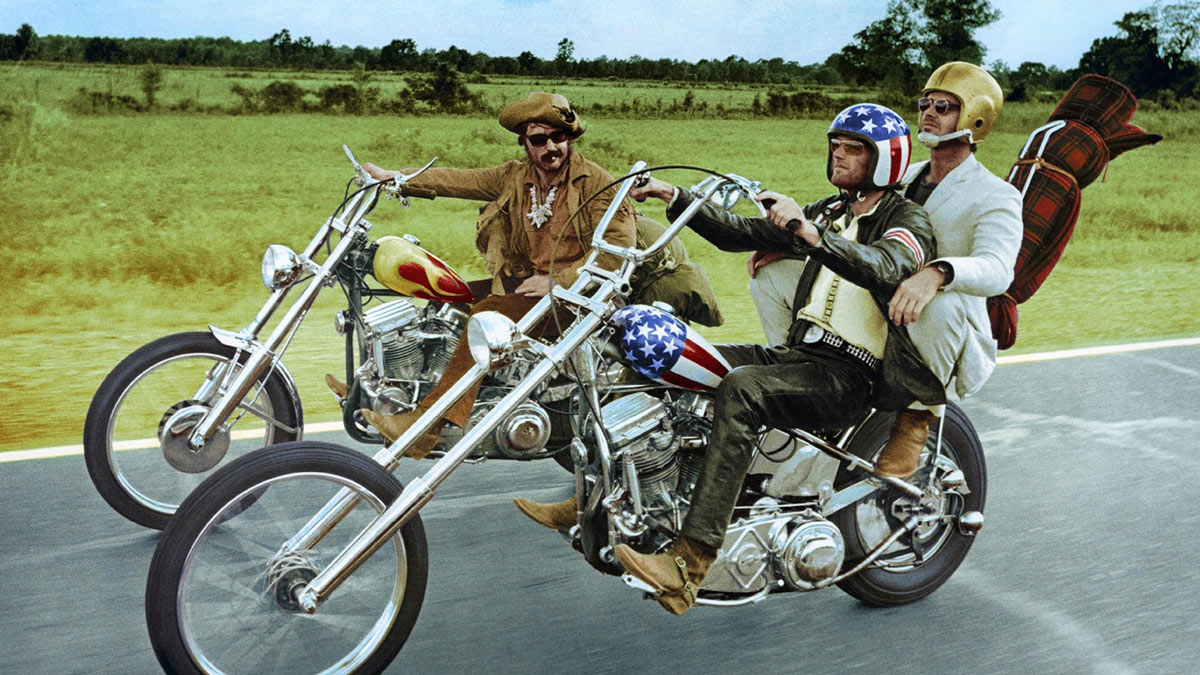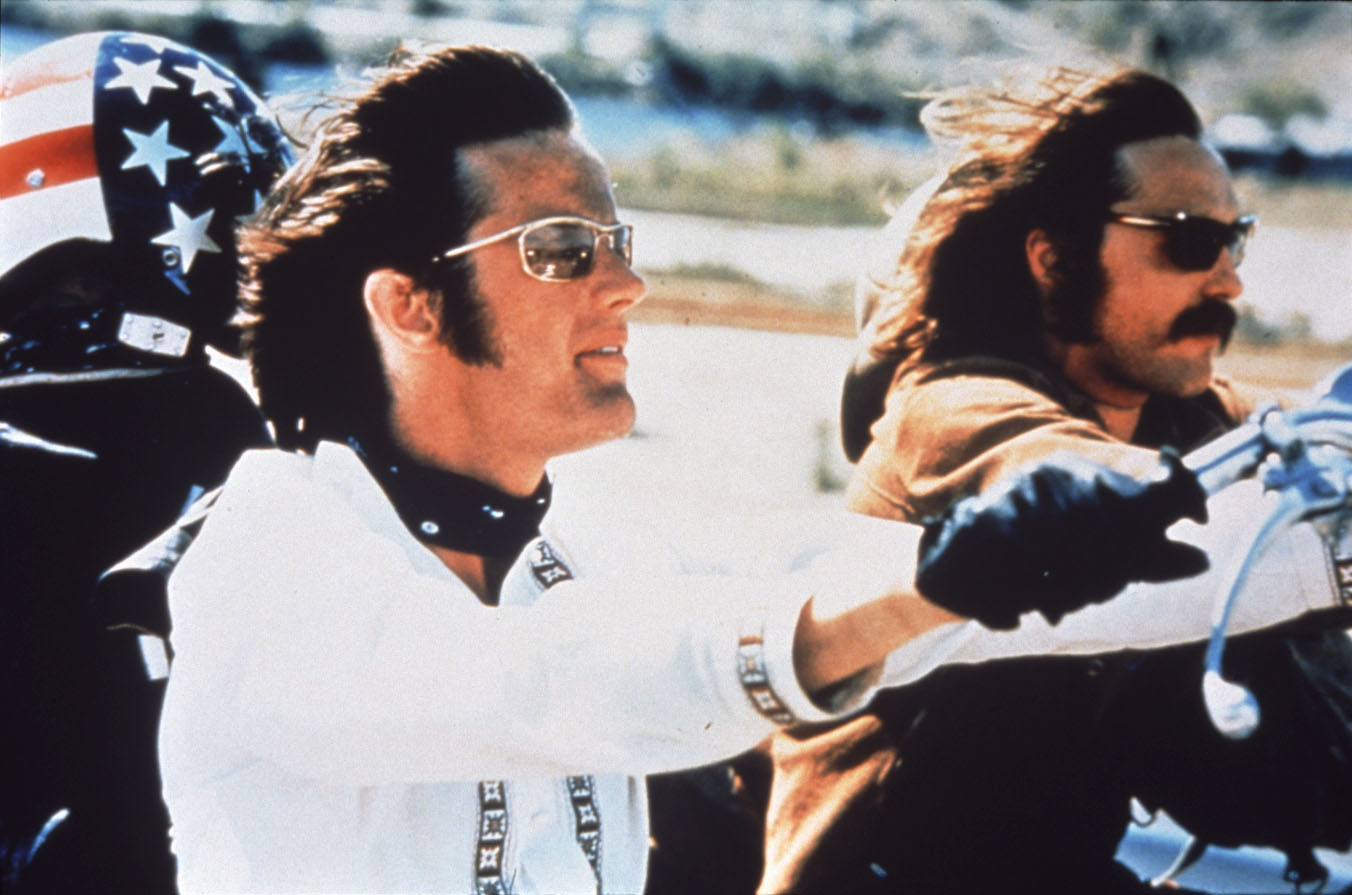
(c) Photofest / Getty Images
Remembering Easy Rider Fonda, Dennis Hopper and Jack Nicholson as they travel freely down the highway in Easy Rider
2019.08.28
Road movies from the American New Cinema era
Among the works that remain in the history of American cinema, there may be few works as elusive as "Easy Rider." Many of the masterpieces that Hollywood has released have clear storylines, and therefore the content is easy to understand even after many years. However, "Easy Rider" is not a work that invites universal sympathy (especially the scenes depicting the hallucinations caused by LSD, which are difficult for Japanese people, who do not have a drug culture, to grasp). The main characters are two young men (Peter Fonda and Dennis Hopper), who make a lot of money from drug dealing and travel around America on a motorcycle.
Along the way, the two meet a drunken lawyer (Jack Nicholson) and continue their journey together, but the lawyer is killed by people who view them as enemies. Afterwards, the two visit New Orleans and watch the New Orleans Mardi Gras festival with prostitutes (Karen Black and Tony Basile), but in the end, an unexpected tragedy strikes.
This work also reflects the atmosphere of the era of 1969. The film was shot in 1968, when the Vietnam War was intensifying in the United States, and young soldiers were being sent to the battlefield and losing their lives. Anti-war movements were gaining momentum in the country, and voices were being raised one after another questioning the values of society up to that point. Hippies who chose to drop out of society and value love and peace also appeared.
One of the monumental events was the rock festival held in Woodstock, a suburb of New York, in 1969. Furthermore, student movements, the civil rights movement, the women's liberation movement, and sexual liberation were on the rise, and old American values were being shaken.
What young people at the time wanted was "freedom" and "emancipation." The carefree traveling protagonists of ``Easy Rider'' were thought to represent the mood of that era.

"Easy Rider" (c)1969 COLUMBIA PICTURES INDUSTRIES, INC. ALL RIGHTS RESERVED.s
The two main characters, named after legendary Western heroes Wyatt Earp and Billy the Kid, attempt to rediscover America in the chaotic late 60s by riding motorcycles instead of horses. Their journey at first seems optimistic, as they meet people who live rooted in the land and visit hippie communes.
However, there are some conservative people who do not take kindly to such travelers. In the play, a drunken lawyer says the following line to the main characters. "They're not afraid of you. They're afraid of what you represent: freedom."
In the end, they would pay the price for their freedom. The second half of the film also reflected the conservatism of the American South, where the story is set.
"Easy Rider" was released in 1967 and featured in Time magazine. The following New Cinema masterpiece " Midnight Cowboy " (1969) won the Academy Award for Best Picture. These films realistically portrayed life-sized Outsider living at the bottom of society, leaving a strong shock to the viewer (many of the films ended with an unexpected death). This was probably because they were entrusted with the dark side of America at the time.
Fonda, Hopper, and Nicholson became the darlings of their time.

